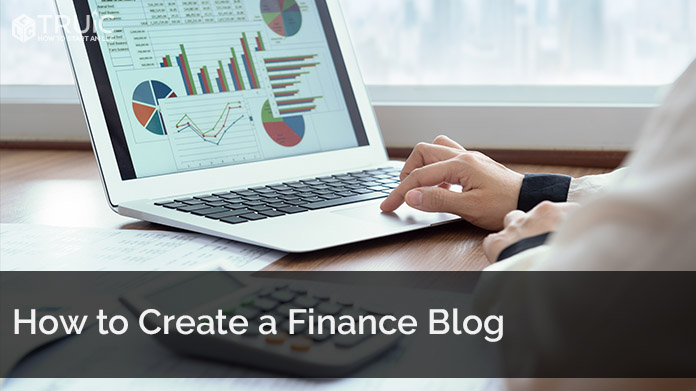How to write a finance blog and excel in 2023

This post may contain affiliate links. This means that if you click the link and make a purchase, I may receive a small commission at no additional cost to you. But please know that all of my opinions are my own. My full affiliate disclaimer can be found here.
Personal finance is one of the most profitable blogging niches. You can help people manage their finances while also making money through affiliate marketing and other strategies. But first, you must learn how to properly launch a personal finance blog.
I know what it takes to run a successful finance blog as a senior writer for LendingTree (primarily its subsidiary sites, Student Loan Hero and Magnify Money). (I was instrumental in increasing Student Loan Hero's traffic and revenue to the point where it was sold for $60 million!)
However, you do not have to be a large corporation to make money in the personal finance niche.
Many individual bloggers make a profit from personal finance blogs, and a few have grown their blogs into multi-million dollar businesses.
If you want to start your own personal finance blog, keep reading to find out how to do it step by step.
Similar posts you may like..
-
Identify your niche: The field of finance is vast, so it's important to identify your niche. Consider what area of finance you are most knowledgeable and passionate about. This could be personal finance, investing, accounting, financial planning, or any other subfield.
-
Define your audience: Once you have identified your niche, define your target audience. Consider their demographics, interests, and pain points. This will help you tailor your content to their needs and preferences.
-
Create a content strategy: A content strategy will help you stay organized and consistent in your blogging efforts. Plan out your topics, keywords, and publishing schedule in advance.
-
Write compelling headlines: Your headlines should be attention-grabbing and informative. They should accurately reflect the content of your post and entice readers to click through and read more.
-
Use data and research: Use data and research to support your arguments and claims. This will add credibility to your posts and help you establish yourself as an authority in the field.
-
Make it readable: Keep your writing clear, concise, and easy to read. Use short paragraphs, subheadings, and bullet points to break up your text and make it more visually appealing.
-
Use visuals: Incorporate visuals such as images, infographics, and charts to make your posts more engaging and shareable.
-
Be consistent: Consistency is key when it comes to blogging. Set a publishing schedule and stick to it. This will help you build an audience and establish yourself as a reliable source of information.
-
Engage with your audience: Encourage comments and feedback on your posts. Respond to comments and engage with your audience to build a sense of community around your blog.
-
Stay up-to-date: Stay up-to-date on the latest trends and developments in the field of finance. This will help you produce timely and relevant content that resonates with your audience.
Creating a personal finance blog takes time, but it can pay off handsomely.
Now that you know how to start a personal finance blog, you can see that the hardest part is getting started. In a matter of hours, you can purchase hosting, design your site, and have your blog up and running.
Growing your blog, on the other hand, is a different story, and it takes time and dedication to create content and increase traffic. Successful personal finance bloggers earn thousands (or even millions) of dollars from their blogs, so it's well worth it.
The key is dedication and perseverance, as well as on-going learning. You may hit stumbling blocks, but keep an open mind and remind yourself that everything is "figure-out-able."
In fact, finding answers to blogging questions is an important part of being a blogger! So accept the challenge and get started on your personal finance blog today. You'll do fantastic!